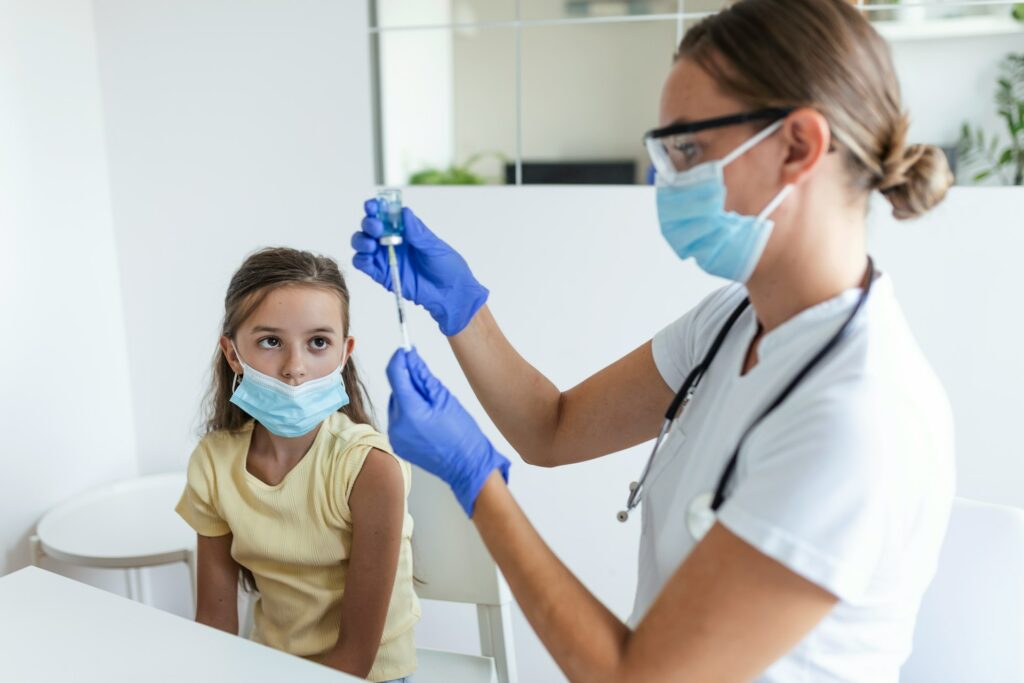Immunizations play a crucial role in safeguarding our children from the devastating effects of serious illnesses. For parents in Oviedo, FL, keeping up with your child’s vaccination schedule is one of the most effective ways to ensure their health and well-being. As vaccine-preventable diseases continue to pose a threat, it’s essential to be well-informed about the importance of pediatric immunizations, the recommended schedule, and the role of timely vaccinations in fostering a healthy community.
In this comprehensive guide provided by Your Kids Urgent Care in Oviedo, FL, we aim to educate parents on the vital importance of childhood vaccinations. By understanding the scientific principles behind immunizations, discerning the recommended schedule, and recognizing the potential consequences of forgoing these essential medical procedures, Oviedo parents can make well-informed decisions to protect their children’s health.
A responsible approach to pediatric immunizations involves understanding the benefits for your child and their role in promoting the well-being of children who cannot receive vaccinations due to medical contraindications. Keeping up to date with your child’s vaccinations is a personal choice and a commitment to supporting overall community health.
As Oviedo, FL parents, you serve as vital protectors, and knowledge is your strongest ally. The comprehensive understanding of pediatric immunizations provided in this guide empowers you to contribute to a safe and healthy environment for the children of Oviedo, promoting a secure future for the entire community.
Recognizing Common Allergy Symptoms in Children
Understanding the signs of allergies is crucial for effective management. Some common allergy symptoms in children include:
1. Sneezing, runny nose, or nasal congestion
2. Coughing, wheezing, or shortness of breath
3. Itchy, watery, or red eyes
4. Skin reactions such as rashes, hives, or eczema
5. Stomach symptoms such as cramps, diarrhea, or vomiting (typically food allergy-related)
6. Anaphylaxis (a severe, life-threatening reaction that requires immediate attention)
Identifying Allergy Triggers in a Child’s Environment
Various triggers can cause allergies, and knowing the culprits helps to tailor effective management strategies. Some common allergy triggers in children include:
1. Pollen: Pollen from grass, trees, or weeds can cause hay fever, particularly during certain seasons.
2. Animal dander: Pet allergens can stem from the skin, saliva, urine, and hair of animals such as dogs, cats, and rodents.
3. Dust mites: Microscopic creatures living in household dust can provoke allergic reactions.
4. Mold spores: Mold allergens can be found in damp, humid indoor environments, causing respiratory issues.
5. Insect stings and bites: Reactions from insects like bees, wasps, or mosquitoes can cause localized or, in some cases, severe reactions.
6. Food allergies: Common food allergens include milk, eggs, peanuts, tree nuts, wheat, soy, fish, and shellfish.
Allergy Testing and Diagnosis
When monitoring possible allergy symptoms, consult with a healthcare professional to determine the cause and develop an appropriate treatment plan. They may recommend the following allergy tests:
1. Skin prick test: Small amounts of suspected allergens are placed on the skin to test for reactions.
2. Blood test: A sample of blood is analyzed to identify specific antibodies (called IgE) associated with allergens.
3. Elimination diet: For suspected food allergies, specific food items are removed from the child’s diet and gradually reintroduced to evaluate potential reactions.
Strategies for Managing Allergies in Children
Once you have identified your child’s allergy triggers, implementing effective management strategies is key. Some practical steps include:
1. Avoidance: Minimize exposure to known allergens through environmental modifications and preventive measures.
2. Medications: Over-the-counter or prescribed medications like antihistamines, corticosteroids, or decongestants can help relieve symptoms.
3. Allergy shots (immunotherapy): If avoidance and medications are insufficient, a doctor may recommend allergy shots, gradually exposing your child to small amounts of allergens to reduce sensitivity.
4. Emergency plan: For severe allergies, develop an emergency action plan with your healthcare provider, ensuring family members and caregivers understand what to do in case of a severe reaction.
Empowering Oviedo, FL Families to Tackle Childhood Allergies
Allergies can be overwhelming for both children and parents, but with extensive knowledge and proactive management, Oviedo families can provide a supportive, nurturing environment for their allergy-prone children. By recognizing symptoms, identifying triggers, and implementing appropriate strategies, parents can help their children thrive despite allergies.
Your Kids Urgent Care’s pediatric urgent care clinic in Oviedo, FL, is dedicated to assisting families dealing with childhood allergies. Collaborating with healthcare professionals, educators, and fellow Oviedo parents, together, we can create an informed community capable of preventing allergy-related complications and ensuring a higher quality of life for all children affected by allergies.



